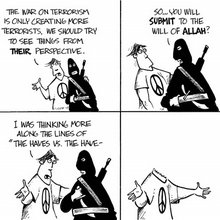“Just Hitting Another Brick Wall”

AWAKE VI:
The United Nations’ Plans for the Future
of the World
PART A

On September 5-9, 2000, following the United Nations Millennium Conference of Religious and Spiritual leaders, the U.N. General Assembly held their 55th annual meeting in New York City, called the Millennium Assembly and Summit. Their agenda was to discuss some very far reaching plans that would steer the world away from sovereign, independent nation-states to a world of disparate peoples in subjugation to the Supreme Authority of the United Nations.
To bring about this goal, the U.N. planned to consider two actions, by consensus instead of the usual formal vote: adoption of the EARTH CHARTER, a document which had undergone several drafts since the first Earth Summit of 1992, and adoption of a Declaration authorizing a new U.N. commission to implement recommendations to bring about global governance. Global governance means World Government through incremental steps, chipping away at national sovereignty one treaty at a time, one world conference at a time, and one UN commission at a time.
A portion of the Millennium Assembly was designated as the Millennium
To listen to the Earth Charter advocates, one would think that the Earth Charter was the ‘Magna Carta’ of a new regime, but not a regime of freedom from tyrannical rulers. It is a charter that would submit the
The Earth Charter demands that we "demilitarize national security systems" (i.e., eliminate our armed services and their weapons). The Charter proclaims that its "Way Forward" requires "a change of mind and heart" as we move toward "global interdependence and universal responsibility."
The Charter demands that we adopt "sustainable development plans and regulations" (i.e., to subordinate human needs to global fads enforced by environment dictators), and that the UN "manage the use of renewable resources such as water, soil, forest products, and marine life . . . [to] protect the health of ecosystems" (i.e., not the health of mere humans).
The Charter demands that we "act with restraint and efficiency when using energy" (i.e., reduce
The Charter exhorts us to affirm "gender equality" and "eliminate discrimination in ... sexual orientation" (i.e., adopt the feminist and gay agendas). The Charter demands that we "integrate into formal education [i.e., assign a UN nanny to monitor our schools] ... skills needed for a sustainable way of life [i.e., indoctrination in how we must subordinate sovereignty to the UN dogma of sustainability]."
The Charter affirms that "all beings are interdependent" (i.e., personal freedom is irrelevant) and "every form of life has value regardless of its worth to human beings" (i.e., animals, plants and insects, but not unborn babies). The Charter demands that we "ensure universal [i.e., global] access to health care that fosters reproductive health [i.e., abortion and contraception] and responsible reproduction [i.e., UN-dictated population control]."
The Earth Charter won't be a treaty that the
The Declaration and Agenda for Action, subtitled "Strengthening the United Nations for the 21st Century," was also considered by the Millennium Assembly and
The Declaration demands the disarmament of all conventional and nuclear weapons, the prohibition of "unilateral deployment of nationwide missile defense by any country," and a "standing Peace Force" (i.e., a UN standing army). It calls for a "UN Arms register" of all small arms and light weapons (there goes our Constitutional Right to keep and bear arms), and "peace education" covering "all levels from pre-school through university."
The Declaration calls for "eliminating" the veto and permanent membership in the Security Council so that the
The Declaration calls for the UN to impose direct taxes such as a "currency transfer tax," a "tax on the rental value of land and natural resources," a "royalty on worldwide fossil energy production -- oil, natural gas, coal," "fees for the commercial use of the oceans, fees for airplane use of the skies, fees for use of the electromagnetic spectrum, fees on foreign exchange transactions (i.e. the Tobin Tax), and a tax on the carbon content of fuels."
The Declaration calls for "a fair distribution of the earth's resources" (from the
The Declaration demands that we "integrate" the World Trade Organization under UN control. All the talk we hear from politicians about "free trade" is just pap for the gullible; the goal is managed trade -- managed by UN bureaucrats. The Declaration calls for implementing UN treaties that the United States has never ratified, including the Convention on the Rights of the Child, the Convention on the Elimination of All Forms of Discrimination Against Women, the Convention on Biological Diversity, and the Covenant on Economic, Social and Cultural Rights (which refuses to recognize the right to private property).
The Declaration calls for the unratified International Criminal Court (ICC) to exercise "compulsory jurisdiction" over all states, enforced by the UN Security Council. The ICC is so dangerous to the constitutional rights of Americans that even Bill Clinton declined to sign it after his Administration had spent years participating in writing and negotiating it. The ICC has been signed by a hundred countries, and now the ICC and the UN are impudently asserting jurisdiction over the
These radical UN Plans, which originated with the UN-funded Commission on Global Governance, are promoted by the NGOs, the hundreds of private Non-Government Organizations that have attached themselves to the United Nations like leeches. The UN now accredits 1,603 NGOs. Accreditation is dependent on the organization declaring that its primary purpose is to "promote the aims, objectives, and purposes of the United Nations."
The NGOs are energetic lobbyists for dramatic changes in the mission and structure of the UN to achieve global governance. The most prominent NGOs are the radical environmental groups such as the Sierra Club and the feminist and population-control groups such as Planned Parenthood. The leader of the UN's restructuring plans is a Canadian named Maurice Strong, who was Secretary General of the Earth
Maurice Strong and the NGOs publicized their extraordinary plans to achieve global governance through the UN in a 410-page report called Our Global Neighborhood, issued in 1995 by the Commission on Global Governance. This document states (p. 359) that the plans to "strengthen" the UN into global government originated with former West German Socialist Chancellor Willy Brandt. The NGOs work the corridors of the United Nations headquarters in
The UN bureaucrats and NGOs have been working ever since on a Charter for Global Democracy to build the framework for a restructured UN, and the plans are now being crystallized in the Earth Charter and the Declaration described above. The NGOs worked for several years under the name NGO Forum and are now becoming the People's Assembly, as recommended by the Commission on Global Governance. This body of unelected pressure groups with leftwing political agendas is supposed to be formally attached to the UN during the Millennium Assembly. Pompously calling themselves the "civil society," they claim to be the voice of the people, in contrast to the General Assembly, which consists of the representatives of national governments. The NGOs dream of becoming the real power in the UN, bypassing the official representatives of nations. (All rather scary stuff, wouldn’t you say?)
The UN bureaucrats and NGOs are skillful with semantics, and their goal of world government is waffled with words that have specialized meanings but may appear non-threatening. Their jargon words used in a positive connotation are sustainable (their favorite word), global, interdependent, civil society, environmental, inclusive, diversity, common good, demilitarize, fair distribution, international, and universal responsibility. Among the jargon words always used negatively are production and consumption. Forbidden words include independence, freedom and sovereignty.
Much of what has been proposed sounds very nice and Christian, kind of “warm fuzzy”, but the cost to our freedoms, our national sovereignty and our safety would be too high a price to pay. Not only would we be signing away our rights and freedoms, and our souls, but we would also be signing away these same rights and freedoms of our children and grandchildren.
Next Week, August 30th: I will continue with Part B















|